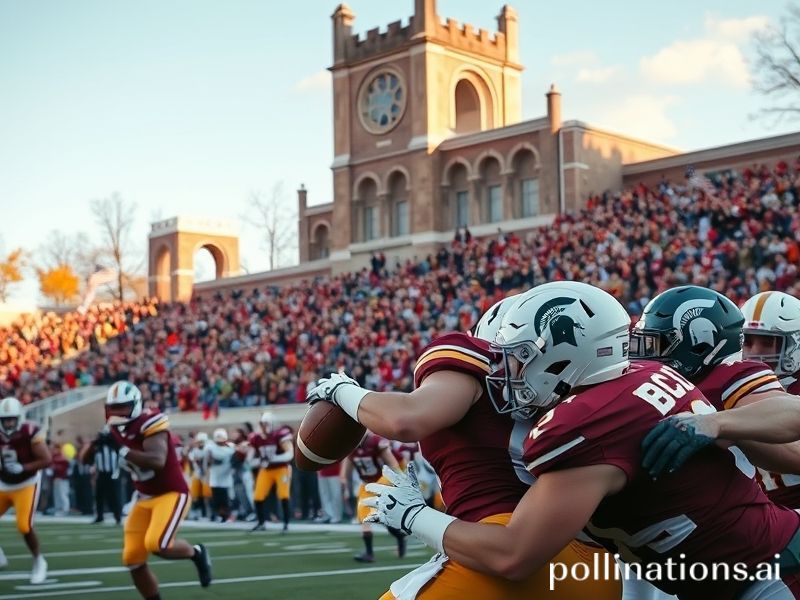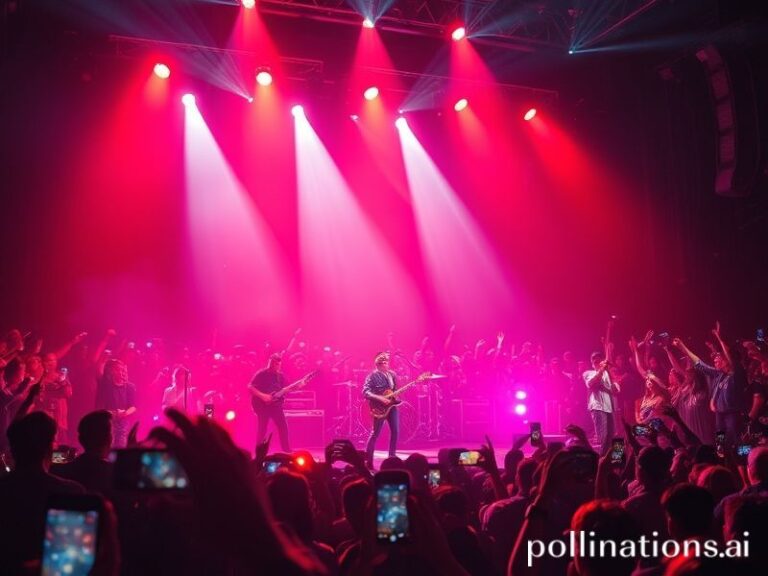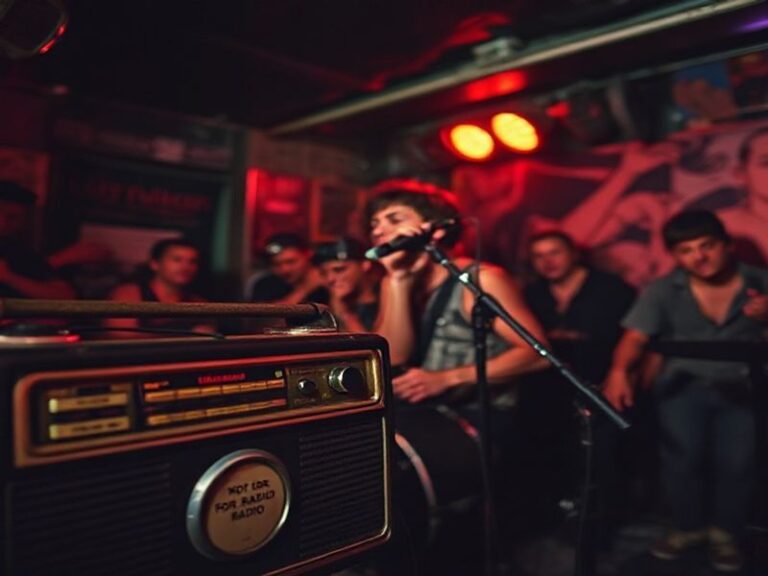From Jesuit Shadows to Spartan Glory: How a Boston College–Michigan State Game Became the World’s Weirdest Soft-Power Briefing
Boston College and Michigan State—two universities whose names conjure images of crisp autumn Saturdays, over-caffeinated freshmen, and the faint smell of burning tuition money—met again on the gridiron last weekend. From a distance, it looked like just another collegiate turf war: helmets clacking, alumni wallets snapping open, marching bands playing fight songs that sound suspiciously like they were composed during the Taft administration. Yet zoom out to satellite view—say, from a weather-beaten café in Lisbon or a dim sum stall in Guangzhou—and this regional skirmish starts to look like a geopolitical microcosm, complete with soft-power posturing, demographic anxieties, and the quiet hum of late-stage capitalism.
First, the scoreboard: Michigan State won 27–24 in overtime, sparing East Lansing’s couch population from ritual sacrifice. Boston College, meanwhile, flew home to Chestnut Hill with the consolation prize of moral superiority and a reminder that Jesuits don’t pay for defense. But let us not dwell on touchdowns; the real spectacle is how two mid-tier American universities became proxy battlegrounds for every global anxiety we pretend to ignore during the workweek.
Consider the rosters. The Spartans started a quarterback born in Frankfurt to a U.S. Army family, a left tackle whose parents fled Aleppo, and a kicker who grew up in Melbourne dreaming of Australian Rules Football until someone handed him an oblong ball and a scholarship. Boston College countered with a safety from Lagos, a slot receiver raised in Toronto by Jamaican immigrants, and a linebacker who once sold yak-butter tea to trekkers in Kathmandu to fund his SAT prep. If you squint, the game looked less like American football and more like a hastily convened United Nations summit where the delegates bench-press Volkswagens.
The broadcast reached 187 countries on ESPN’s myriad tentacles, meaning a bleary-eyed shrimp farmer in the Mekong Delta could watch a 19-year-old from suburban Ohio fumble the same way he watches monsoons: with weary resignation. Advertising slots sold for $150,000 a pop, peddling crypto exchanges, tactical flashlights, and a commemorative coin “struck from real steel salvaged from the USS Arizona,” because nothing says collegiate spirit like monetizing sunken warships. Somewhere in Brussels, a European Commission intern paused mid-report on carbon tariffs to ask why grown men in plastic armor were selling commemorative war metal during a school game. The intern then returned to calculating the continent’s methane output, quietly relieved that at least Belgian universities riot over tuition hikes, not kickoff times.
Global implications? Start with the export of American angst. The NCAA’s “student-athlete” myth—equal parts Dickensian workhouse and Nike commercial—has become a soft-power franchise rivaling Marvel movies. South Korean cram-school kids now study Michigan State’s defensive schemes between calculus drills, while Nigerian WhatsApp groups debate whether Boston College’s Jesuit pedigree offers a surer path to an H-1B visa than, say, Purdue. The game’s analytics spreadsheets circulate in Shanghai venture-capital circles as proof that data-driven recruitment can monetize adolescent knees faster than you can say “ACL tear.” Meanwhile, European sports ministers watch the unpaid labor spectacle with the queasy fascination of medieval peasants touring a particularly profitable plantation.
And then there’s the money. Ticket revenue alone could bankroll a midsize Moldovan ministry, but that’s chump change compared to the real prize: branding rights in the global imagination. Every pirated stream in Jakarta, every illegal bet placed in Nairobi, every confused viewer in Reykjavik wondering why the clock stops so often—each is another neuron in the American collegiate-industrial complex, that great kraken whose tentacles stretch from cotton-bowl fields to Silicon Valley server farms. Somewhere in Davos, a private-equity baron smiles into his Aperol spritz, secure in the knowledge that alumni donations are the only Ponzi scheme still socially acceptable.
In the end, the final whistle blew, the goalposts survived, and the planet spun on. Analysts will parse the game for weeks, coaches will promise next year’s crop of teenagers that glory is just one compound fracture away, and the rest of us will return to our regularly scheduled meltdowns. But for one autumn evening, two American colleges managed to make the world care about third-down conversions—a minor miracle, considering most of humanity is still trying to figure out how to pay the electric bill. And that, dear reader, is the most American play of all.







